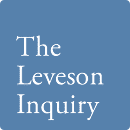Index relies entirely on the support of donors and readers to do its work.
Help us keep amplifying censored voices today.
Gordon Brown has denied that his wife Sarah gave consent to the Sun to run a 2006 story about their son suffering from cystic fibrosis, contesting the evidence given to the Leveson Inquiry by the paper’s then-editor Rebekah Brooks.
The former prime minister told the Leveson Inquiry this morning that there was “no question ever of explicit permission” given to the tabloid, denying Brooks’ claim that the Browns had given her permission to run the front-page story in November 2006, which revealed the couple’s four-month-old son was suffering from the disease.
Brown revealed he had received a letter of apology from the Fife health board, which stated it believed it was “highly likely” that there was unauthorised information given by a staff member that “allowed the Sun in end through this middleman to publish the story”.
Brooks told the Inquiry last month that the story came from a father of another child cystic fibrosis sufferer, and maintained she had the Browns’ express permission before publishing the story.
“If the Browns had asked me not to run cystic fibrosis story, I wouldn’t have,” she told the Inquiry.
But Brown said today that “no parent in the land…would have given explicit permission for this story”, claiming he and his family were presented with a “fait accompli” and had no choice over the story being published.
When asked by counsel Robert Jay QC why Sarah Brown arranged Brooks’s 40th birthday party in June 2008 and attended her wedding the following year, Brown said his wife was “one of the most forgiving people” and that she “finds the good in everyone”.
He also refuted claims made under oath to the Inquiry by News Corp boss Rupert Murdoch that Brown had “declared war” on the Sun during a 2009 conversation with the media mogul, following the tabloid switching its support to the Conservative party ahead of the 2010 general election.
“The conversation never took place,” Brown said, adding that there was “absolutely no evidence”, and that he felt it was “shocking” that the Inquiry had been told under oath that the conversation had occurred. He added that he was not surprised by the allegiance switch, believing it had been planned for “many, many months”.
He also made several digs at the tabloid for what he saw as sensationalised reporting of the war in Afghanistan, accusing its coverage of suggesting the Labour party “didn’t care about what was happening to our troops”. Brown said he still felt damage had been done to the war effort by such claims.
Discussing his dealings with media barons, Brown said he had a “duty” to engage with the press but that there was a “line in the sand” that he could not cross.
“You can serve dinner but don’t have to serve up BSkyB as part of that dinner,” he said, alluding to the recent storm over links between the Department for Culture, Media and Sport and News Corp over the bid for the takeover of the satellite broadcaster.
During his time as prime minister from 2007 to 2010, Brown said he “rarely” read newspapers, quipping: “I’m so obsessed by the newspapers I rarely read them”.
Elsewhere in his morning of evidence, Brown stressed his concerns for the future of “quality journalism” at one point suggesting a BBC licence fee model ought to be looked at for funding journalism in the future.
The Inquiry continues this afternoon with evidence from chancellor George Osborne.
Follow Index on Censorship’s coverage of the Leveson Inquiry on Twitter – @IndexLeveson
 The inquiry into UK press standards does not seem to understand how to deal with the web, says
The inquiry into UK press standards does not seem to understand how to deal with the web, says
Marta Cooper
Rod Liddle was stupid to write his article on the trial of Gary Dobson and David Norris, and the Spectator was stupid to publish it. Now the magazine has been fined — not for contempt of court, though anyone with a faint awareness of media law knows that law was broken, but for the even more straightforward offence of breaching a court order. A judge said don’t do it and they did it: it doesn’t get simpler.
Does the incident raise any more complicated issues? No doubt the case will be made.
Liddle thought the trial of Dobson and Norris for the murder of Stephen Lawrence was unfair, and he expressed this view in the Spectator while the trial was in progress. No problem there, you may think, except that well-established and well-known English law forbids such opinionating in public while the justice process is under way.
It does so, not as a form of authority-inspired censorship, not to inhibit discussion about the justice system and not because the system doesn’t really trust jurors, but to protect the weak and the innocent. The law exists because defendants, their lawyers and others who cared about justice argued for it and won the argument.
Liddle knew this. Now he may disagree with the law, but in a democracy the normal course of action for people who want to change a law is to make the case for change rather than to break the law.
Equally, if he believes strongly that Norris and Dobson are victims of a miscarriage of justice he was free to make that case after the verdict. There are, sadly, plenty of miscarriages of justice and there are quite a lot of people who want to draw attention to them. With rare exceptions they do so within the law.
Does Liddle really disagree so fundamentally with the law on contempt that he feels the need to break it? Does he really care so much about the case of Norris and Dobson that he will break the law to support them?
If so we can respect his views even if we question his methods, and perhaps we can look forward to seeing him engage in further acts of civil disobedience in pursuit of his cause. We can also expect him to explain that his past actions were calculated and deliberate (though the Spectator might not be happy about that).
If, on the other hand, this was a casual act of arrogance by someone who knew he personally would pay no price for it, how surprised would we be?
Brian Cathcart teaches journalism at Kingston University London and is a founder of the Hacked Off Campaign. in 2000, he won the Orwell Prize for his book The Case of Stephen Lawrence. He tweets at @BrianCathcart
 The Leveson Inquiry should not forget the need to protect British journalism, says Marta Cooper
The Leveson Inquiry should not forget the need to protect British journalism, says Marta Cooper
(more…)